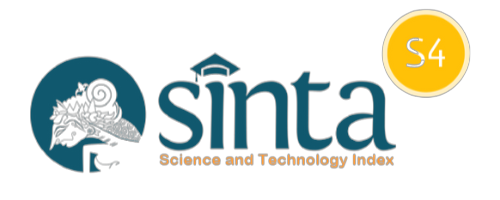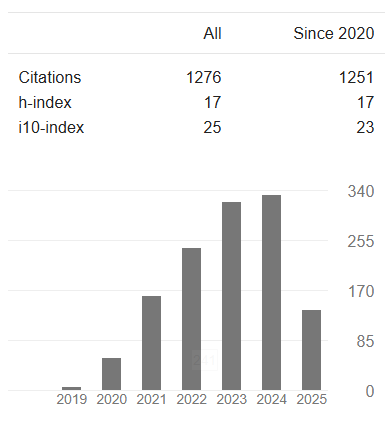Indonesian Muslim Consumers' Perspectives and Behavior on Intentions to Use Islamic Financial Products Post-Covid-19
DOI:
https://doi.org/10.14421/EkBis.2022.6.1.1549Keywords:
Muslim Consumers’ Perspective, Theory of Planned Behaviour, Islamic Financial Product, Covid-19Abstract
This study was motivated by the importance of exploring the factors that influence people's intentions to buy or use Islamic financial products during the Covid-19 pandemic in Indonesia. Research with quantitative technique was carried out in the form of an online survey and tested using the structural equation model (SEM) method with the SmartPLS version 3.0M application. Sampling in this study used convenience sampling technique and obtained 456 respondents. The results of this study showed that almost all variables, namely religiosity, subjective norms, Islamic financial literacy, awareness, perceived behavioral control and attitudes were proven to be strong predictors of intention to use Islamic financial products. This research provides recommendations to various parties, both financial institutions, Islamic organizations and even the government need to collaborate to strengthen the level of Islamic financial literacy in the community. In addition, this study also provides recommendations to build public trust in the Islamic economy, especially Islamic banking through collaborative development of an Islamic economic roadmap including strengthening the role of Islamic banking both in terms of infrastructure and human resources. Various parties must come together to build a strong Islamic financial ecosystem and economic recovery post-Covid-19 to develop a prosperous and prosperous Indonesian economy in accordance with Islamic ideals as Rahmatan lil 'Alamin.
Downloads
References
Adam, I. O. (2020). Examining E-Government development effects on corruption in Africa: The mediating effects of ICT development and institutional quality. Technology in Society, 61, 101245. https://doi.org/10.1016/J.TECHSOC.2020.101245
Afthanorhan, A., Awang, Z., & Aimran, N. (2020). An extensive comparison of cb-sem and pls-sem for reliability and validity. International Journal of Data and Network Science, 4(4), 357–364. https://doi.org/10.5267/j.ijdns.2020.9.003
Agarwala, R., Mishra, P., & Singh, R. (2019). Religiosity and consumer behavior: a summarizing review. Journal of Management, Spirituality and Religion, 16(1), 32–54. https://doi.org/10.1080/14766086.2018.1495098
Ainil, A., Tanra, M., Afdalia, N., Yuniar, L. S., Abdullah, M. I., Kahar, A., & Sastrawan, E. (2021). Switching Behavior Customers of Sharia Banks in Indonesia. Advances in Economics, Business and Management Research, 163(ICoSIEBE 2020), 306–311.
Ajzen, I. (1991). The Theory of Planned Behavior. Organizational Behaviour and Human Decision Processes, 50, 179–211. https://doi.org/10.1080/10410236.2018.1493416
Ajzen, I. (2020). The theory of planned behavior: Frequently asked questions. Human Behavior and Emerging Technologies, 2(4), 314–324. https://doi.org/10.1002/hbe2.195
Albaity, M., & Rahman, M. (2019). The intention to use Islamic banking: an exploratory study to measure Islamic financial literacy. International Journal of Emerging Markets, 14(5), 988–1012. https://doi.org/10.1108/IJOEM-05-2018-0218
Alsaad, A. K. (2021). Ethical judgment, subjective norms, and ethical consumption: The moderating role of moral certainty. Journal of Retailing and Consumer Services, 59(October 2020), 102380. https://doi.org/10.1016/j.jretconser.2020.102380
Aracil, E., Nájera-Sánchez, J. J., & Forcadell, F. J. (2021). Sustainable banking: A literature review and integrative framework. Finance Research Letters, January. https://doi.org/10.1016/j.frl.2021.101932
Arshad, H. M., Saleem, K., Shafi, S., Ahmad, T., & Kanwal, S. (2020). Environmental awareness, concern, attitude and behavior of university students: A comparison across academic disciplines. Polish Journal of Environmental Studies, 30(1), 561–570. https://doi.org/10.15244/pjoes/122617
Aziz, S., Afaq, Z., Muhammad, L., & Khan, B. (2020). The Role of Media, Word of Mouth, and Subjective Norms in determining Attitude and Intentions to Purchase Family Takaful ¯ Schemes. Journal of Islamic Business and Management (JIBM), 10(01), 110–130. https://doi.org/10.26501/jibm/2020.1001-008
Balasubramnian, B., & Sargent, C. S. (2020). Impact of inflated perceptions of financial literacy on financial decision making. Journal of Economic Psychology, 80(January), 102306. https://doi.org/10.1016/j.joep.2020.102306
Barbera, F. La, & Ajzen, I. (2020). Control interactions in the theory of planned behavior: Rethinking the role of subjective norm. Europe’s Journal of Psychology, 16(3), 401–417. https://doi.org/10.5964/ejop.v16i3.2056
Berakon, I., Aji, H. M., & Hafizi, M. R. (2021). Impact of digital Sharia banking systems on cash-waqf among Indonesian Muslim youth. Journal of Islamic Marketing. https://doi.org/10.1108/JIMA-11-2020-0337
Cristea, M., & Gheorghiu, A. (2016). Attitude, perceived behavioral control, and intention to adopt risky behaviors. Transportation Research Part F: Traffic Psychology and Behaviour, 43, 157–165. https://doi.org/10.1016/j.trf.2016.10.004
Ernawati,Dwi Widi ; Purnomosidhi, B. (2011). PENGARUH SIKAP, NORMA SUBJEKTIF, KONTROL PERILAKU YANG DIPERSEPSIKAN, DAN SUNSET POLICY TERHADAP KEPATUHAN WAJIB PAJAK DENGAN NIAT SEBAGAI VARIABEL INTERVENING. Management UB, 1–21.
Ghozali, M., Azmi, M. U., & Nugroho, W. (2019). Perkembangan Bank Syariah Di Asia Tenggara: Sebuah Kajian Historis. Falah: Jurnal Ekonomi Syariah, 4(1), 44. https://doi.org/10.22219/jes.v4i1.8700
Goyal, K., & Kumar, S. (2021). Financial literacy: A systematic review and bibliometric analysis. International Journal of Consumer Studies, 45(1), 80–105. https://doi.org/10.1111/ijcs.12605
Gui, Z., Huang, Y., & Zhao, X. (2021). Whom to educate? Financial literacy and investor awareness. China Economic Review, 67(December 2020), 101608. https://doi.org/10.1016/j.chieco.2021.101608
Hair, J., Hollingsworth, C. L., Randolph, A. B., & Chong, A. Y. L. (2017). An updated and expanded assessment of PLS-SEM in information systems research. Industrial Management and Data Systems, 117(3), 442–458. https://doi.org/10.1108/IMDS-04-2016-0130
Hair, Joe F, Risher, J. J., Sarstedt, M., & Ringle, C. M. (2018). The Results of PLS-SEM Article information. European Business Review, 31(1), 2–24.
Hair, Joseph F., Risher, J. J., Sarstedt, M., & Ringle, C. M. (2019). When to use and how to report the results of PLS-SEM. European Business Review, 31(1), 2–24. https://doi.org/10.1108/EBR-11-2018-0203
Hair Jr., J. F., Matthews, L. M., Matthews, R. L., & Sarstedt, M. (2017). PLS-SEM or CB-SEM: updated guidelines on which method to use. International Journal of Multivariate Data Analysis, 1(2), 107. https://doi.org/10.1504/ijmda.2017.10008574
Hutomo Mukti, H. (2020). Development of Indonesian Sharia Banks with Malaysia Comparation Method (Study of History, Products and Legal Assets). Lambung Mangkurat Law Journal, 5(1), 75. https://doi.org/10.32801/lamlaj.v5i1.140
Ibrahim, M. A., Fisol, W. N. M., & Haji-Othman, Y. (2017). Customer Intention on Islamic Home Financing Products: An Application of Theory of Planned Behavior (TPB). Mediterranean Journal of Social Sciences, 8(2), 77–86. https://doi.org/10.5901/mjss.2017.v8n2p77
Islam, T., & Chandrasekaran, U. (2020). Religiosity and consumer decision making styles of young Indian Muslim consumers. Journal of Global Scholars of Marketing Science, 30(2), 147–169. https://doi.org/10.1080/21639159.2019.1679031
Kemal Budi Mulyono. (2021). Decision Model for Saving Stocks Based on TPB and Financial Lit- eracy. 16(141), 94–102. https://doi.org/10.15294/dp.v16i1.29164
Lim, H. R., & An, S. (2021). Intention to purchase wellbeing food among Korean consumers: An application of the Theory of Planned Behavior. Food Quality and Preference, 88(December 2019), 104101. https://doi.org/10.1016/j.foodqual.2020.104101
Lusardi, A. (2012). NUMERACY, FINANCIAL LITERACY, AND FINANCIAL DECISION-MAKING. In NBER WORKING PAPER SERIES (Vol. 126, Issue 8).
Majeed, M. T. (2019). Social capital and economic performance of the Muslim world: Islamic perspectives and empirical evidence. International Journal of Islamic and Middle Eastern Finance and Management, 12(4), 601–622. https://doi.org/10.1108/IMEFM-02-2018-0057
Marimin, A., & Romdhoni, A. H. (2017). Perkembangan Bank Syariah Di Indonesia. Jurnal Ilmiah Ekonomi Islam, 1(02), 75–87. https://doi.org/10.29040/jiei.v1i02.30
Mohammad Yusuf, & Reza Nurul Ichsan. (2021). Analysis of Banking Performance in The Aftermath of The Merger of Bank Syariah Indonesia in Covid 19. International Journal of Science, Technology & Management, 2(2), 472–478. https://doi.org/10.46729/ijstm.v2i2.182
Mohd Thas Thaker, H., Sakaran, K. C., Nanairan, N. M., Mohd Thas Thaker, M. A., & Iqbal Hussain, H. (2020). Drivers of loyalty among non-Muslims towards Islamic banking in Malaysia: Evidence from SmartPLS. International Journal of Islamic and Middle Eastern Finance and Management, 13(2), 281–302. https://doi.org/10.1108/IMEFM-07-2018-0211
Mujahidah, K. (2013). Analisis Faktor Dan Proses Pengambilan Di Yogya Bogor Junction Pernyataan Mengenai Skripsi Dan Sumber Informasi Serta Pelimpahan Hak Cipta *. IPB Thesis.
Muslichah, I., & Sanusi, S. (2019). The effect of religiosity and financial literacy on intention to use Islamic banking products. Asian Journal of Islamic Management (AJIM), 1(2), 85–92. https://doi.org/10.20885/ajim.vol1.iss2.art2
Padil, H. M., Kasim, E. S., & Ismail, N. (2020). An Exploratory Factor Analysis of Financial Literacy and Awareness of An Exploratory Factor Analysis of Financial Literacy and Awareness of Investment Scam. 3(November).
Reni, A., & Ahmad, N. H. (2016). Application of Theory Reasoned Action in Intention To Use Islamic Banking in Indonesia. Al-Iqtishad: Journal of Islamic Economics, 8(1), 137–148. https://doi.org/10.15408/aiq.v8i1.2513
Rindang, S. T., & Rismayani, R. (2021). Analysis of Otoritas Jasa Keuangan Position in the Organizational Life Cycle. Jurnal Riset Akuntansi Dan Bisnis Airlangga, 6(1), 955–973. https://doi.org/10.20473/jraba.v6i1.68
Rusdianto, H., & Ibrahim, C. (2017). Pengaruh Produk Bank Syariah Terhadap Minat Menabung Dengan Persepsi Masyarakat Sebagai Variabel Moderating Di Pati. Equilibrium: Jurnal Ekonomi Syariah, 4(1), 43. https://doi.org/10.21043/equilibrium.v4i1.1837
Russo, D., & Stol, K.-J. (2021). PLS-SEM for Software Engineering Research. ACM Computing Surveys, 54(4), 1–38. https://doi.org/10.1145/3447580
Salim, M., Aprianto, R., Abu Bakar, S. A., & Rusdi, M. (2022). Muslim Clothing Online Purchases in Indonesia during COVID-19 Crisis. Economies, 10(1). https://doi.org/10.3390/economies10010019
Sardiana, A. (2016). The Impact of Literacy to Shariah Financial Service Preferences. Etikonomi, 15(1), 43–62. https://doi.org/10.15408/etk.v15i1.3115
Sarstedt, M., Ringle, C. M., Cheah, J. H., Ting, H., Moisescu, O. I., & Radomir, L. (2020). Structural model robustness checks in PLS-SEM. Tourism Economics, 26(4), 531–554. https://doi.org/10.1177/1354816618823921
Sekaryuni, R., Budi Utomo, S., Widarjono, A., Tohirin, A., & Sudarsono, H. (2021). Promoting Islamic Financial Ecosystem to Improve Halal Industry Performance in Indonesia: A Demand and Supply Analysis. 1(1), 12–21. ojk.go.id
Setyanta, Budi ; Kurniawan A, D. (2019). DOES RELIGIOSITY MODERATE THE INFLUENCE OF TRUST ON THE INTENTION TO USE SHARIA BANKING PRODUCTS. 7th AICIF UNIDA Gontor Indonesia, 102.
Shin, Y. H., & Hancer, M. (2016). The role of attitude, subjective norm, perceived behavioral control, and moral norm in the intention to purchase local food products. Journal of Foodservice Business Research, 19(4), 338–351. https://doi.org/10.1080/15378020.2016.1181506
Soma, A. M., Primiana, I., Wiryono, S. K., & Febrian, E. (2017). Religiosity and Islamic Banking Product Decision: Survey on Employees of PT Telekomunikasi Indonesia. Etikonomi, 16(1), 25–42. https://doi.org/10.15408/etk.v16i1.4379
Suko, F., Sobari, N., & Usman, H. (2018). Pengaruh Attitude , Subjective Norms dan Perceived Behavioral Control terhadap Intensi Kepemilikan Kartu Kredit Syariah. MEIS : Jurnal Middle East and Islamic Studies, 5(2), `.
Sweldens, S., Corneille, O., & Yzerbyt, V. (2014). The Role of Awareness in Attitude Formation Through Evaluative Conditioning. Personality and Social Psychology Review, 18(2), 187–209. https://doi.org/10.1177/1088868314527832
Tri, S., Nasution, A., Dalimunthe, H., & Lubis, A. H. (2021). Generation Y ’ s Behavior Intention in Using Mobile Banking Application. March. https://doi.org/10.21275/SR21302124400
WARDANA, M. A., RAHYUDA, I. K., SUKAATMADJA, I. P. G., & GIANTARI, I. G. A. K. (2021). Antecedents and Consequences of Intention to Become a Customer: A Case Study of Islamic Banks in Indonesia. Journal of Asian Finance, Economics and Business, 8(4), 827–839. https://doi.org/10.13106/jafeb.2021.vol8.no4.0827
Whidya Utami, C. (2017). Attitude, Subjective Norms, Perceived Behavior, Entrepreneurship Education and Self-efficacy toward Entrepreneurial Intention University Student in Indonesia. European Research Studies Journal Volume, XX(2A), 475–495.
Zeng, N., Liu, Y., Gong, P., Hertogh, M., & König, M. (2021). Do right PLS and do PLS right: A critical review of the application of PLS-SEM in construction management research. Frontiers of Engineering Management, 8(3), 356–369. https://doi.org/10.1007/s42524-021-0153-5





























 This work is licensed under a
This work is licensed under a 